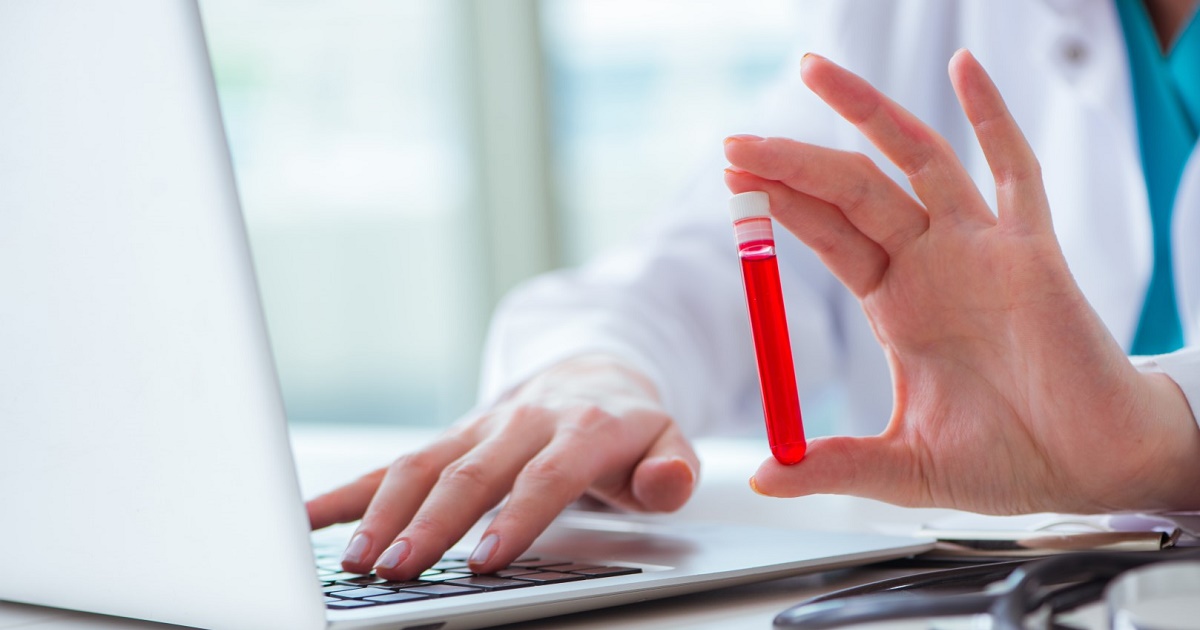
Medical
Capricor Therapeutics | January 24, 2024
Capricor Therapeutics a biotechnology company developing transformative cell and exosome-based therapeutics for the treatment and prevention of rare diseases, today announced that Capricor’s proprietary StealthX™ exosome-based multivalent vaccine (StealthX™ vaccine) for the prevention of SARS-CoV-2 has been selected to be part of Project NextGen, an initiative by the U.S. Department of Health and Human Services to advance a pipeline of new, innovative vaccines providing broader and more durable protection for COVID-19. As part of Project NextGen, the National Institute of Allergy and Infectious Diseases (NIAID), part of the National Institutes of Health, will conduct a Phase 1 clinical study with Capricor’s StealthX™ vaccine, subject to regulatory approval. NIAID's Division of Microbiology and Infectious Diseases (DMID) would oversee the study.
“We are extremely pleased with the external support from the NIH, which highlights the clinical potential of our StealthX™ exosome platform technology and provides non-dilutive support for the advancement of our vaccine candidate,” said Linda Marbán, Ph.D., Capricor’s chief executive officer. “Our proprietary vaccine is multivalent, delivering both the highly mutagenic S protein (Spike) and the more stable N protein (Nucleocapsid) which potentially may offer broader and longer lasting immunity against SARS-CoV-2. We view the NIH SARS-CoV-2 project as the first clinical step towards development of a next generation vaccine platform that may be extended to other infectious diseases. Our platform is designed to combine the speed of response of an mRNA vaccine with the potential efficacy of a protein vaccine. Further, our StealthX™ vaccine is free of both adjuvant and lipid nanoparticles and in preclinical studies has generated a strong immune response at low doses. We believe our StealthX™ vaccine may offer a clinically meaningful alternative for highly mutating or novel infectious agents.”
Dr. Marbán continued, “This is the opportunity we have been waiting for as it allows the exosome technology to be brought into the clinic as we continue to focus our resources on CAP-1002 for the treatment of Duchenne muscular dystrophy. Beyond SARS-CoV-2, we look forward to exploring the potential therapeutic utility of this platform, and more broadly, expanding our pipeline into therapeutics and future partnership opportunities.”
About Capricor’s StealthX™ Vaccine
The StealthX™ vaccine is a proprietary vaccine developed internally by Capricor utilizing exosomes that were engineered to express either spike or nucleocapsid proteins on the surface. Preclinical results from murine and rabbit models published in Microbiology Spectrum, showed the StealthX™ vaccine, resulted in robust antibody production, potent neutralizing antibodies, a strong T-cell response and a favorable safety profile. These effects were obtained with administration of only nanogram amounts of protein and without adjuvant or synthetic lipid nanoparticles (LNPs). Exosomes offer a new antigen delivery system that potentially could be utilized to rapidly generate multivalent protein-based vaccines. Exosomes, first identified as extracellular vesicles, are small vesicles enriched in specific subsets of proteins, RNAs and lipids and responsible for cell-to-cell communication.
About Capricor Therapeutics
Capricor Therapeutics, Inc. is a biotechnology company focused on the development of transformative cell and exosome-based therapeutics for the treatment and prevention of rare diseases. Capricor’s lead candidate, CAP-1002, is an allogeneic cardiac-derived cell therapy currently in Phase 3 clinical development for treating Duchenne muscular dystrophy (DMD). Further, Capricor has entered into a partnership for the exclusive commercialization and distribution of CAP-1002 for DMD in the United States and Japan with Nippon Shinyaku Co., Ltd. (U.S. subsidiary: NS Pharma, Inc.), subject to regulatory approval. Capricor is also developing its exosome technology as a potential next-generation therapeutic platform. Our proprietary StealthX™ exosome platform has potential for a broad range of new therapeutic applications in the field of vaccinology as well as targeted oligonucleotide, protein and small molecule therapeutics to treat or prevent a variety of diseases.
Read More

MedTech
Stevanato Group | January 25, 2024
Stevanato Group S.p.A. a leading global provider of drug containment and delivery solutions to the pharmaceutical, biotechnology, and life sciences industries, unveiled today two new offerings for efficient small batch pharmaceutical manufacturing: the EZ-fill® Kit and the non-GMP laboratory fill and finish service at its Technology Excellence Centers (TEC).
In a context where reducing time-to-market is key, Stevanato Group’s new EZ-fill® Kit offers fast access to a customizable and versatile solution to pharma and biotech companies needing to efficiently fill small batches with high-quality injectable formulations during clinical trials or commercial phases.
The surge the industry has seen in biopharmaceuticals treating various diseases in several therapeutical areas may signal a significant growth potential for pharmaceutical companies. Injectables, comprising more than 60% of the over 21,000 drugs currently in development, of which 44% are biopharmaceuticals, require high-performance primary packaging and delivery technologies for proper storage and administration.
Stevanato Group’s EZ-fill® Kit builds on its existing ready-to-use platform of pre-sterilized containment solutions – vials, cartridges, and syringes – allowing customers to effectively screen different primary packaging in combination with drug products. The kit will be available as a modular box made up of glass ready-to-use drug containers and add-on components on request, shipped by courier. As a result, the platform can bring enhanced levels of quality and safety to patients across the entire drug life cycle and improve the rate at which new drugs enter the market. EZ-fill® Kit will be presented at Pharmapack and is expected to be available commercially beginning in the second quarter of 2024.
Additionally, to better support customers, Stevanato Group has introduced a non-GMP laboratory filling and finishing service at its Technology Excellence Centers (TEC) in Boston, USA, and Piombino Dese, Italy. This new service allows customers to assess and identify the possible effects of the fill-and-finish process on their product performance as early as the container selection stage, thus de-risking processes and enhancing development and commercialization strategy.
“In the race to bring new advanced biopharmaceutical products to market and to patients, Stevanato Group is tackling the challenge of supporting customers with flexible drug containment and filling solutions in a timely manner," says Fabio Bertacchini, Senior Director EZ-fill® Vials & Cartridges at Stevanato Group. "Stevanato Group remains focused on developing new offerings that can help raise pharmaceutical manufacturing standards. By leveraging the expertise provided by our global TEC Centers, we aim to support customers' innovation, helping them face tests and de-risking processes and making right-the-first-time choices throughout their drug development journey.”
About Stevanato Group
Founded in 1949, Stevanato Group is a leading global provider of drug containment, drug delivery and diagnostic solutions to the pharmaceutical, biotechnology and life sciences industries. The Group delivers an integrated, end-to-end portfolio of products, processes and services that address customer needs across the entire drug life cycle at each of the development, clinical and commercial stages. Stevanato Group’s core capabilities in scientific research and development, its commitment to technical innovation and its engineering excellence are central to its ability to offer value added solutions to clients.
Read More

Medical
Twist Bioscience Corporation | January 30, 2024
Twist Bioscience Corporation a company enabling customers to succeed through its offering of high-quality synthetic DNA using its silicon platform, today announced the expansion of Twist Express Genes, a new leading gene synthesis service with an order to shipping turnaround starting at five business days1, to include larger DNA preparations up to 1 milligram.
The Express Genes offering, initially launched in November 2023, now extends to larger midiprep (10μg to 100 μg) and maxiprep (100μg to 1mg) DNA preparations. As with Twist standard speed Clonal Genes, all Twist Express Genes are NGS-verified as clonally perfect.
“Since the initial launch of our Express Genes service in November, we have received positive and enthusiastic feedback from existing customers on our consistent and rapid turnaround time. By expanding Express Genes to include midiprep and maxiprep, we can now offer rapid gene synthesis at all gene prep scales, enabling large scale experimentation for pharmaceutical, biotechnology, academic and industrial chemical researchers,” said Emily M. Leproust, Ph.D., CEO and co-founder of Twist Bioscience. “With the expanded offering of Twist Express Genes, more researchers can gain access to Twist genes fast and at scale, including those using alternative providers and those cloning their own genes. The ability to order and receive synthetic DNA fast and at scale means more time for cutting-edge research, more make-test-learn cycles, and an accelerated journey to game-changing discoveries.”
Twist leverages its ability to miniaturize the chemical reaction to create DNA using its silicon-based DNA synthesis platform along with expertise, software, optimized processes and the expanded layout of its Wilsonville facility to deliver Clonal Genes and Gene Fragments at scale and with rapid turnaround times. Twist’s Express Genes are offered with dynamic pricing, which reflects market demand and manufacturing capacity in a responsive premium price. Customers are able to quickly and easily place orders for Express Genes through Twist’s ecommerce platform.
Twist Express Genes
Twist Express Genes are 0.3kb to 5.0kb in length. Due to scale enabled by Twist’s platform, orders of any size both small and large can be filled, and as with standard speed Twist Clonal Genes, Twist Express Genes are NGS sequence-verified as one hundred percent accurate. Twist Express Genes can be cloned into catalog vectors or custom vectors so that customers can move right to experimentation. They can also be shipped in customers’ preferred delivery formats, including tubes and plates. For more information and product specifications click here.
Current turnaround times for some Twist Bioscience products
Express Genes1 (50ng-10µg): starting at 5 business days, now for up to 10µg
Standard Clonal Genes (50ng-10µg): starting at 10 business days
Express Genes1 (10µg-1mg): starting at 8 business days
Standard Clonal Genes (10µg-1mg): starting at 13 business days
1 Express Clonal Genes ship in 5-7 business days. DNA prep sizes including 10 μg - 100 μg, and 100 μg - 1 mg may incur an additional 3-5 days for synthesis. Orders placed outside of the US will incur additional delivery turnaround time. Express Genes orders that require new custom vector onboarding will incur an additional 1-2 weeks for processing.
About Twist Bioscience Corporation
Twist Bioscience is a leading and rapidly growing synthetic biology and genomics company that has developed a disruptive DNA synthesis platform to industrialize the engineering of biology. The core of the platform is a proprietary technology that pioneers a new method of manufacturing synthetic DNA by “writing” DNA on a silicon chip. Twist is leveraging its unique technology to manufacture a broad range of synthetic DNA-based products, including synthetic genes, tools for next-generation sequencing (NGS) preparation, and antibody libraries for drug discovery and development. Twist is also pursuing longer-term opportunities in digital data storage in DNA and biologics drug discovery. Twist makes products for use across many industries including healthcare, industrial chemicals, agriculture and academic research.
Read More

Medical
Personalis, Inc. | February 05, 2024
Personalis, Inc. a leader in advanced genomics for cancer, and ClearNote Health, Inc., a pioneer in epigenomic technologies, today unveiled an alliance through which Personalis will expand its pharmaceutical service offerings by distributing ClearNote’s cutting-edge epigenomic 5-hydroxymethylcytosine (5hmC) platform.
“We have built a unique pharma channel based on our industry-leading tissue and MRD assays and ClearNote Health’s blood-based epigenomic approach is complementary to our offering as it helps our customers deepen their understanding of a patient’s response to immunotherapies,” said Chris Hall, CEO and President of Personalis. “Commercial partnerships such as this broaden our portfolio and are expected to appeal to a wide range of biopharma customers and accelerate our revenue growth.”
Echoing this sentiment, Dave Mullarkey, CEO of ClearNote Health, remarked, “Partnering with Personalis presents an excellent opportunity to bring our 5hmC technology to the forefront of cancer research. This alliance is a testament to the synergy between our two companies, enabling us to expand our reach and significantly impact the biopharmaceutical industry. Together, we can accelerate the development of personalized therapies and make a real difference in the lives of patients.”
ClearNote Health’s Epigenomics Platform represents a groundbreaking advance in cancer detection, offering real-time insights into disease-specific pathways. By tracking changes in 5hmC levels coupled with artificial intelligence-based analytical methods, the platform can detect cancer earlier, monitor disease progression, understand mechanisms of resistance, and identify promising drug targets and biomarkers. These insights are invaluable for optimizing drug development programs and delivering more effective treatments to patients. The Epigenomics Platform identifies changes in gene activation and gene regulation by labeling specific changes in the 5hmC landscape from plasma-derived cell-free DNA. This rich biological information, as part of clinical trials, enables the monitoring of cancer therapies in real time and contributes to an understanding of drug resistance mechanisms. The partnership marks a pivotal moment in cancer research, leveraging the strengths of both companies to offer unparalleled solutions in the biopharmaceutical industry.
About ClearNote Heath, Inc.
ClearNote Health is a cancer detection company focused on enabling people at risk for high-mortality cancers to live longer, healthier lives. Utilizing a standard blood draw, the company applies its proprietary epigenomic platform, combining biology and artificial intelligence, to identify DNA-based changes in biology as cancer develops. With lead programs in non-invasive early detection of pancreatic and ovarian cancers in patients at the highest risk for these diseases, ClearNote Health identifies cancers before they progress and when patients are most likely to benefit from treatment. ClearNote Health’s first commercially available test is the Avantect™ Pancreatic Cancer Test, which detects the presence of pancreatic cancer signals in patients at high risk of the disease, including those recently diagnosed with Type 2 diabetes. ClearNote Health is headquartered in San Diego, with additional presence in the San Francisco Bay area and internationally. The company’s CLIA- and CAP-accredited laboratory is located in San Diego, Calif.
About Personalis, Inc.
At Personalis, we are transforming the active management of cancer through breakthrough personalized testing. We aim to drive a new paradigm for cancer management, guiding care from biopsy through the life of the patient. Our highly sensitive assays combine tumor-and-normal profiling with proprietary algorithms to deliver advanced insights even as cancer evolves over time. Our products are designed to detect minimal residual disease (MRD) and recurrence at the earliest time points, enable the selection of targeted therapies based on ultra-comprehensive genomic profiling, and enhance biomarker strategy for drug development. Personalis is based in Fremont, California.
Read More